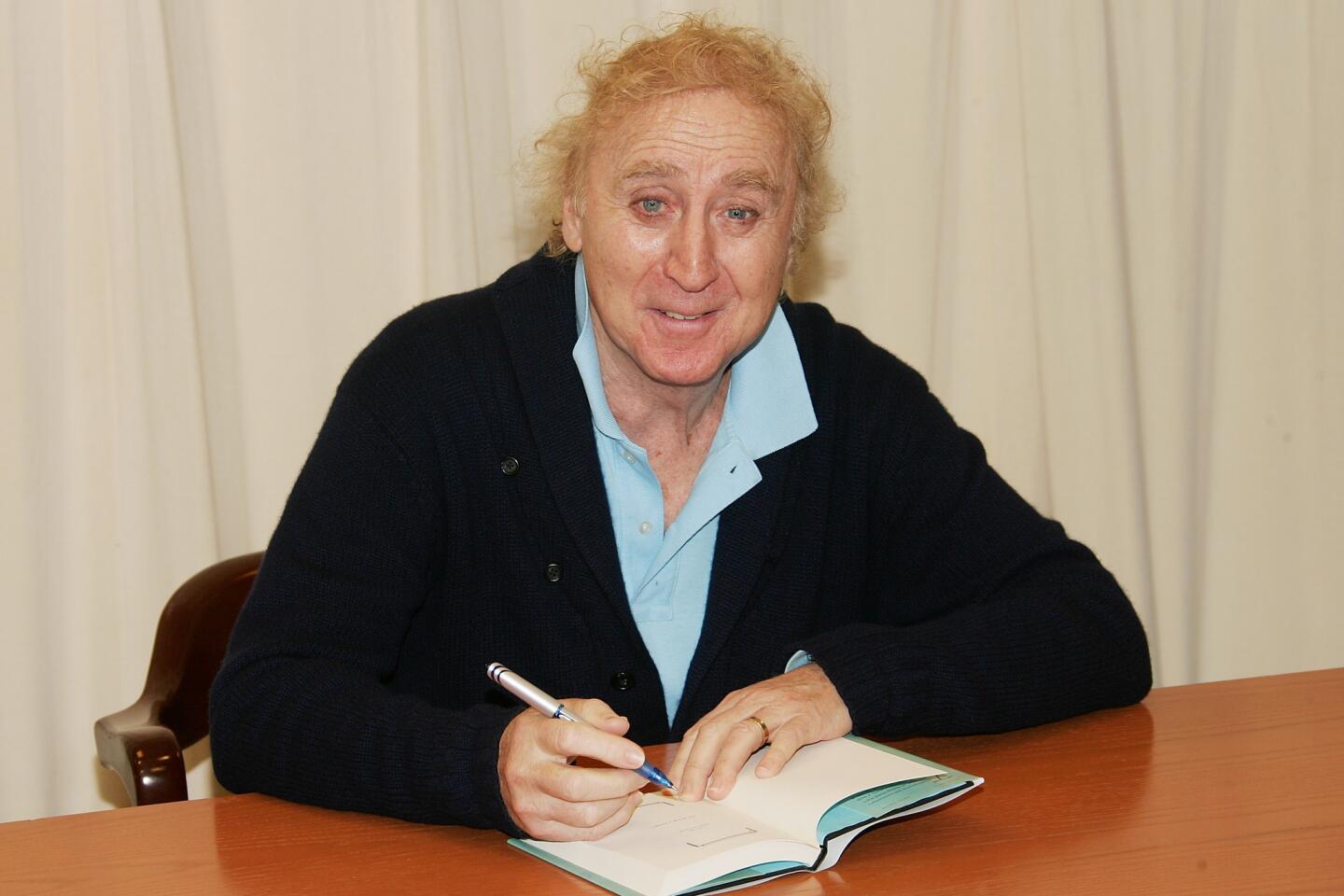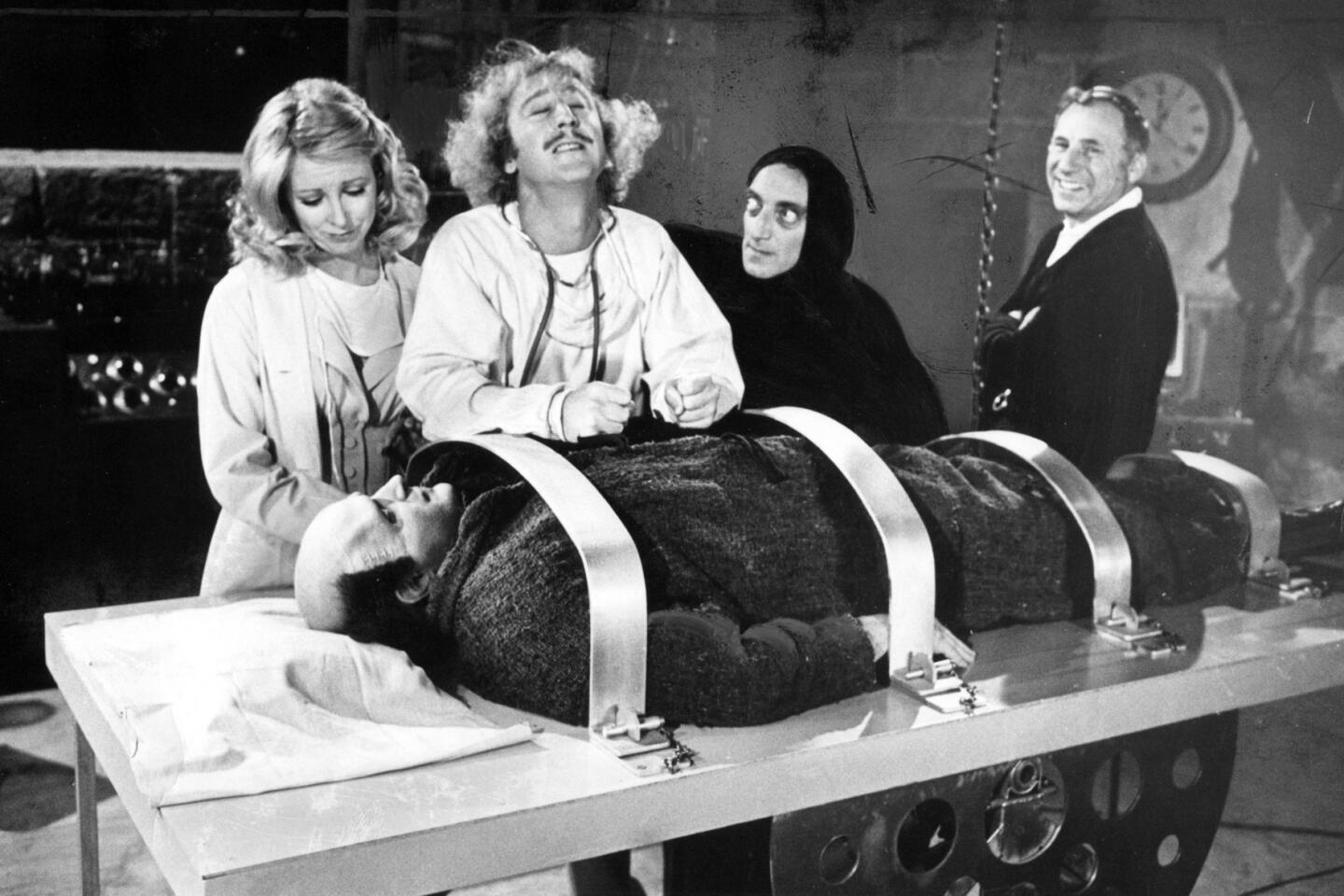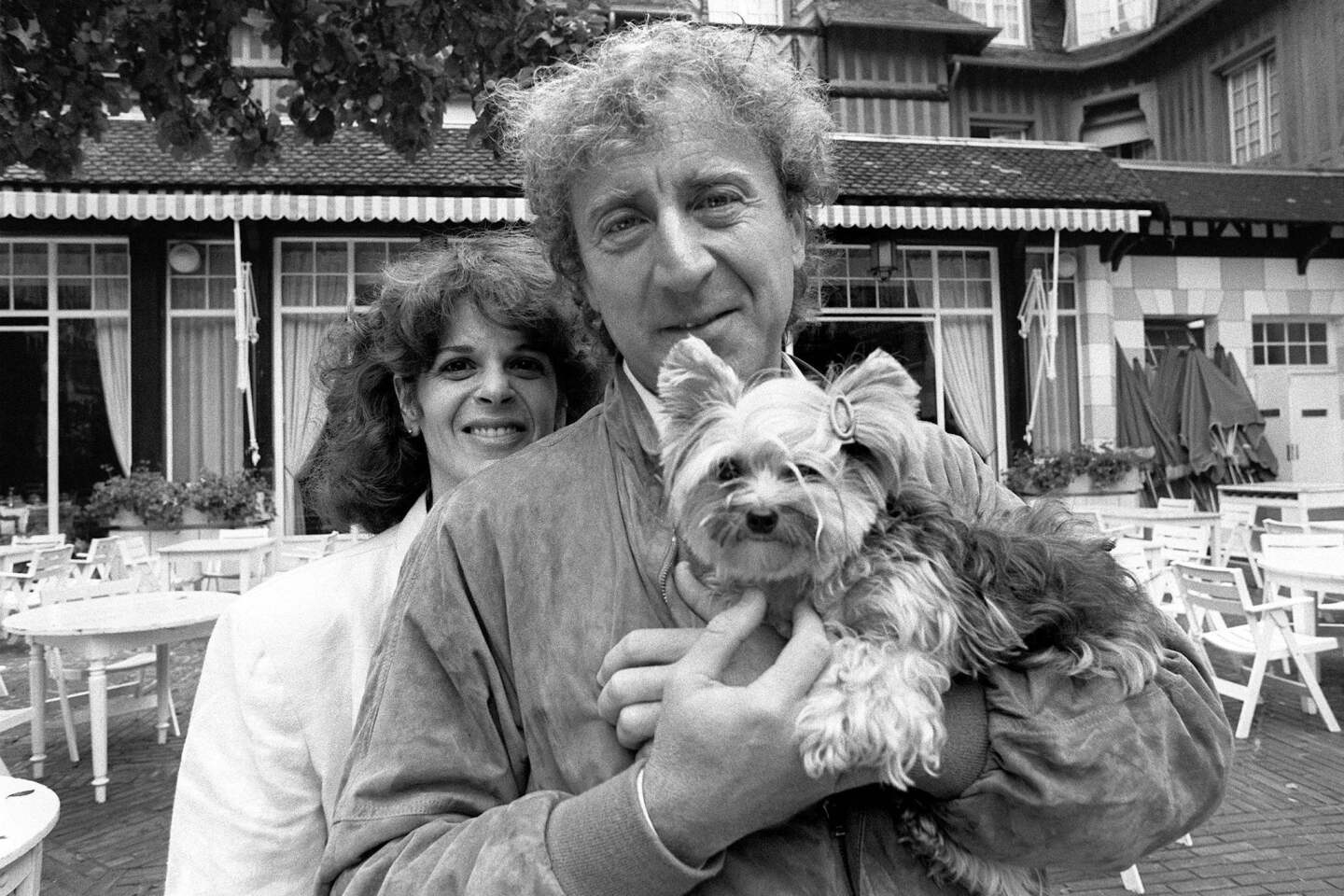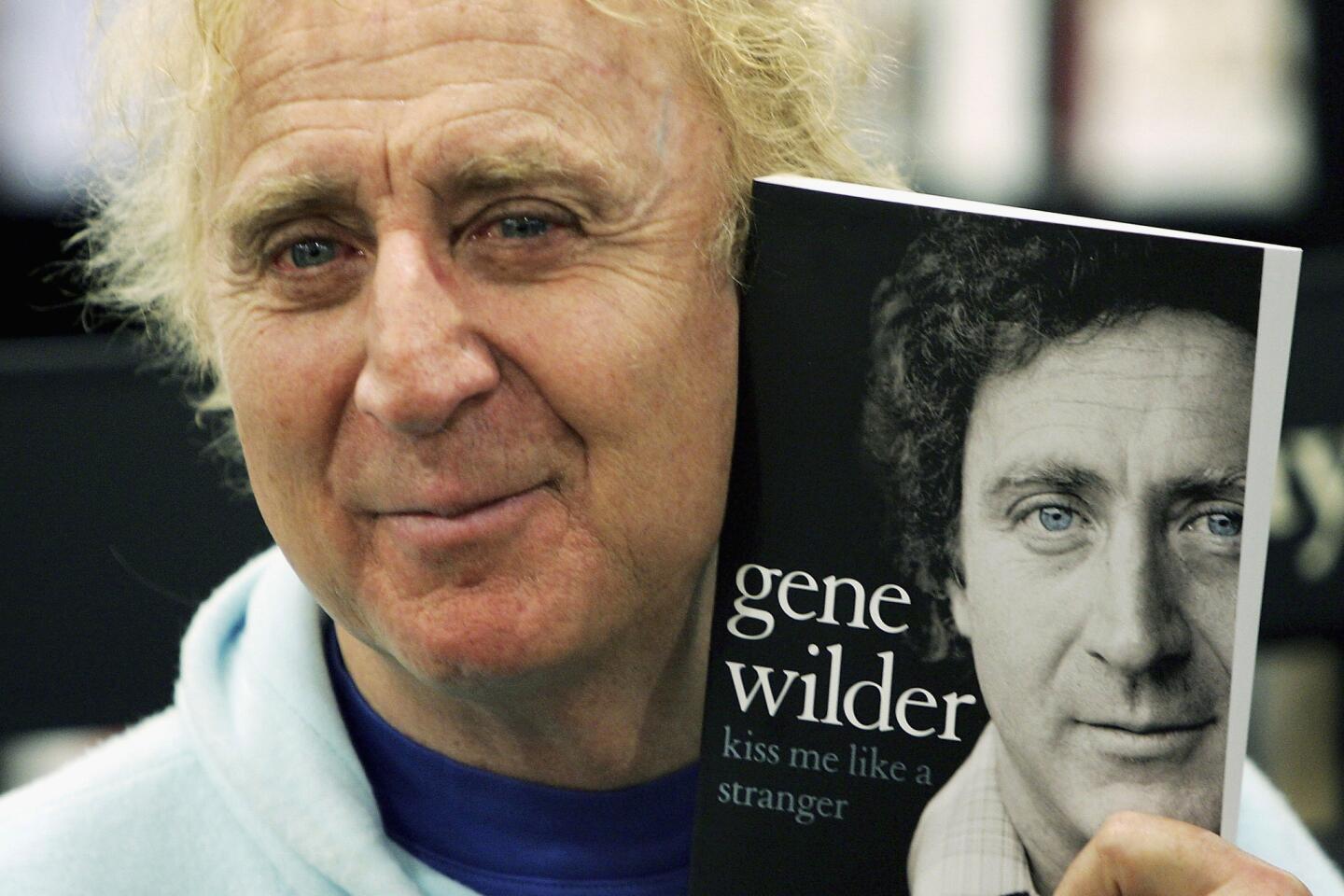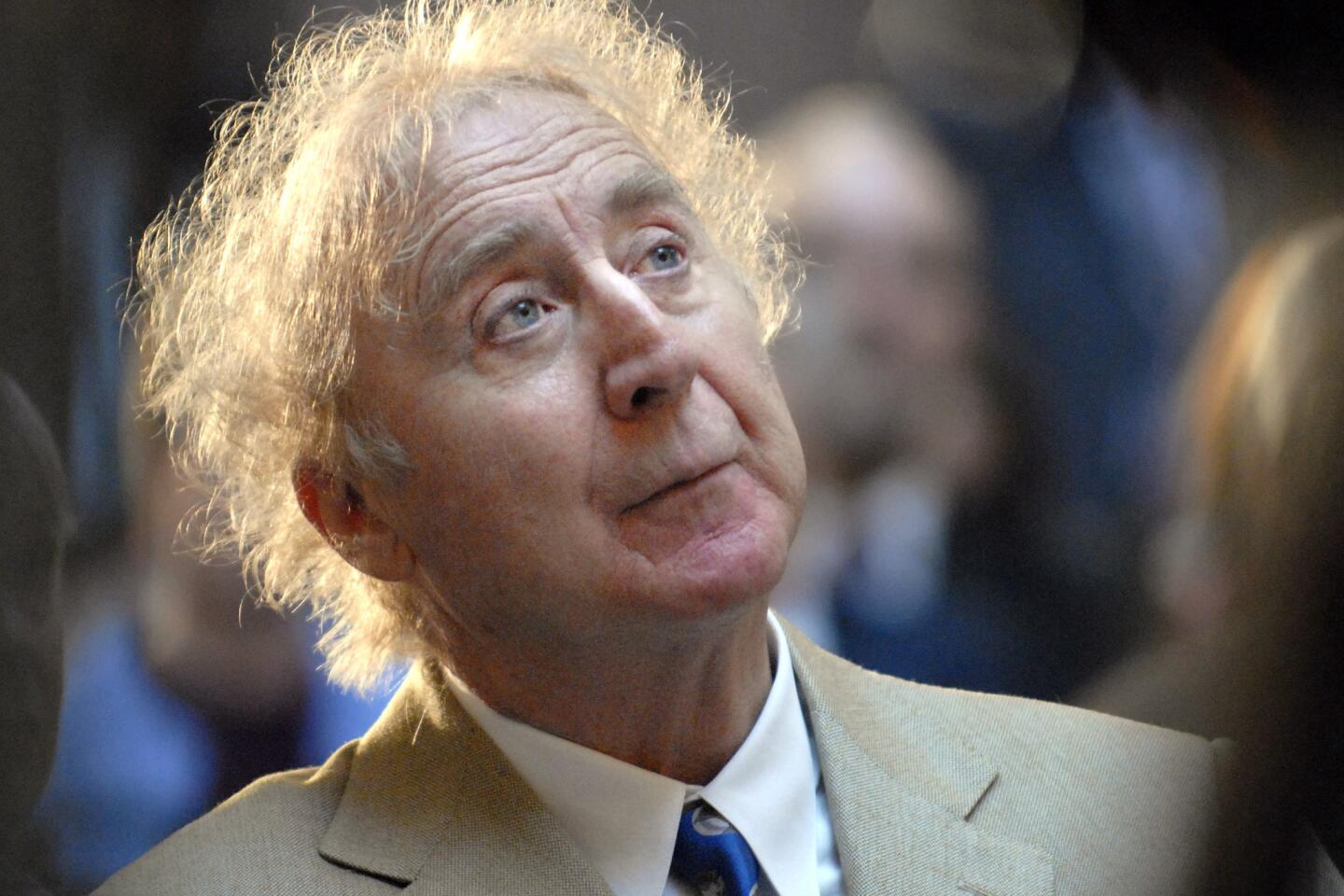Gene Wilder and grieving in the digital age: Why we mourn the famous, and in such a public way
- Share via
On Monday, the news of Gene Wilder’s death provoked a swift-moving, digitally enhanced river of emotion. Tweets of grief, admiration and gratitude rose like a cloud of sparrows startled from a field; media platforms of every sort were stacked with tributes. Facebook filled with video clips and favorite lines — “Put. The candle. Back.” Whether in an office or an airport, Americans paused over their screens to call up scenes from “Willy Wonka & the Chocolate Factory,” “Blazing Saddles” and “Young Frankenstein,” listened to “Pure Imagination” on repeat.
Digital access has fashioned its own modern ritual for grieving the famous, and it has become an art form, due, in part, to much practice. It has been a brutal year: Prince, David Bowie, Muhammad Ali, Harper Lee, Alan Rickman, Doris Roberts — the list of notable deaths is long and varied and it’s only August.
But grief will not be hurried, even when there’s video attached, and despite all the portals of instant connection, certain deaths affect us more than others. Among the legions of famous and beloved, each of us has a short list of who we consider “our people.” When they die, we may tweet and post and choose sad emoticons but it doesn’t help; we are left unexpectedly dazed and unmoored.
Gene Wilder’s death has left me feeling unexpectedly dazed and unmoored.
I remember the first time I saw “Young Frankenstein” more clearly than I remember my college graduation, the moment I got my first real job or the day I married my husband. I was 10, sitting in a front row of the Carroll Theater in Westminster, Md., with a string of my friends. Already giddy with the freedom of no adult accompaniment, we laughed with increasing hysteria as the film unfurled its black-and-white brilliance across the screen, and my life was never the same again.
For days, weeks, months, years, my friends and I repeated the lines, the bits, over and over again. I saw the film three times during its initial run, an unprecedented demand for my family at the time, when the price of even one movie ticket had to be calculated into the weekly budget.
Sure, I had loved him in “Willy Wonka” but, when that film came out, I was a child and I loved it as a child. It would take me years to appreciate the sly humor, the wary hope of the performance; at the time I mostly liked the somersault.
Two years later, though, the early, pliant stages of personhood had begun to form and Wilder, with his wild-eyed, wild-haired yet exquisitely controlled, perfectly cadenced and oddly vulnerable comedy, reached out and in and left his thumbprint behind.
I would have followed him anywhere. And I did. Saw every movie he ever made, even the awful ones, which weren’t awful to me because he was in them. Even when working with subpar material, he was so quick and funny and smart and sweet, so patient in his timing, unafraid of chaos yet endlessly empathetic.
It wasn’t that I wanted to be him, or marry him, or even meet him. He, like many others, helped me learn to appreciate humor but I never wanted to be a comedian.
But by watching and imitating him, I learned who I was, what I thought, how I felt and how I wanted to interact with others.
I can’t explain it any better than that. Gene Wilder helped teach me how to be a person in the world.
Now he is gone and though I didn’t know him, never met him, the universe seems to stutter a bit, brought up short by a space where something important should be.
And that is why we grieve these famous strangers in ways that often seem obsessive, over-the-top and weird. Why the world grinds briefly to a halt when some beloved artist dies, why the tweets and tributes fly, the multitudes gather, bathed in candlelight and bearing flowers, for people they have never met.
The contradiction of fame is that it is born of something deeply, painfully, even stupidly personal: People become famous because many other people feel an intense connection with them and their work.
We grieve the death of any artist for many reasons — the change they stood for, the loss of future work, the personal pain that may have led to death, or simply because we associate the work with important times in our own lives.
Everyone has their own list of names, writers or actors, musicians or painters, dancers, directors or composers who, in ways that may defy description, did more than just explain or illuminate the world.
At a certain point in the film “Love Actually,” Harry, played by Alan Rickman (another great changer of souls we recently lost), teases his wife Karen, played by Emma Thompson, about her enduring love of Joni Mitchell. “I love her and true love lasts a lifetime. Joni Mitchell,” she explains, “taught your cold English wife how to feel.”
Many artists entertain, provoke, enrich or educate us, but everyone has a few who helped build us.
When they go, we are as we were, but somewhere inside a floorboard creaks, a joint settles and the interior walls shiver for a moment around a new patch of emptiness.
ALSO
Gene Wilder dies at 83; ‘Willy Wonka’ star and Mel Brooks collaborator
From ‘Willy Wonka’ to ‘Stir Crazy’: Remembering Gene Wilder through his five greatest performances
Remembering Gene Wilder: In (not-quite) defense of ‘Silver Streak’
Hollywood mourns the loss of comedy legend Gene Wilder
From the Archives: Gene Wilder on his first turn as a romantic lead in ‘Funny About Love’
From the Archives: A charming, witty introduction to a ‘Stranger’ a la Gene Wilder
From the Archives: Gene Wilder discusses his acting successes and preference for writing
More to Read
The complete guide to home viewing
Get Screen Gab for everything about the TV shows and streaming movies everyone’s talking about.
You may occasionally receive promotional content from the Los Angeles Times.
